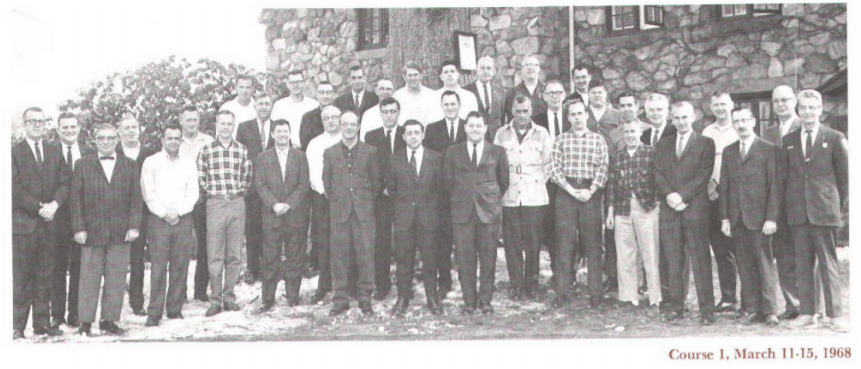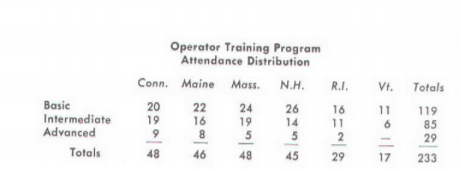This article was originally published in the April, 2018 issue of NEIWPCC’s former quarterly e-newsletter, iWR.

Thirty-seven wastewater operators made history on March 11, 1968, by participating in NEIWPCC’s first wastewater training program.
Fifty years and thousands of classes later, NEIWPCC continues to be a leader in providing environmental education and training throughout the Northeast.
That first year, Commission instructors held five week-long classes at Bradley Palmer State Park in Topsfield, Massachusetts.
The program, designed with input from a 1967 Commission-issued survey of wastewater operators across the region, featured many of the same topics offered today: basic math, hydraulics, and laboratory procedures. Courses were designed as basic-, intermediate-, and advanced-level trainings.

Commissioners voiced concerns over the growing operator shortage and skill gap in 1967. In its annual report to the states for that year, the Commission found that “approximately 70% of wastewater treatment plants were being operated by staff with little or no technical training.”
The Commission further estimated that “by 1977, an additional 1800 plant operators and technical staff would be needed to operate the more than 600 plants proposed or in the process of being constructed across the region.”
Fortunately, the Commission had the foresight to address the shortage by providing the first wastewater operator training program in the region. The training program continues to thrive.
Today, NEIWPCC manages training and certification programs in Maine and Massachusetts and provides a robust wastewater training curriculum throughout the region.
In 1967, a subcommittee of the Commission’s Technical Advisory Board worked quickly to contract with The Water and Wastewater Technical School (WWTS) in Neosho, Missouri, and to secure a training space and oversee the development of class material by a WWTS instructor A.A. Baker, who also served as instructor.
Baker became the first director and training instructor for the New England Regional Wastewater Institute that NEIWPCC established in South Portland, Maine.
Last year, NEIWPCC offered training to 159 classes to 2,782 participants. Students earned 27,310 credit hours from these courses.
NEIWPCC’s training program and the construction and operation of wastewater treatment plants have been the most effective engines of progress for clean water in the Northeast since 1947.